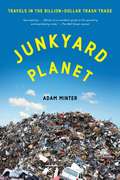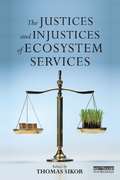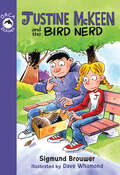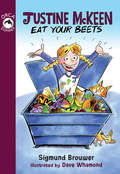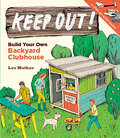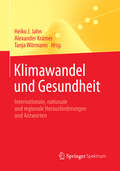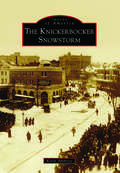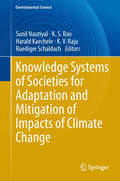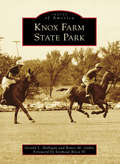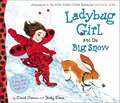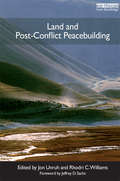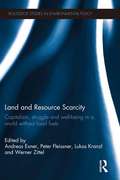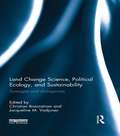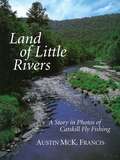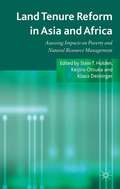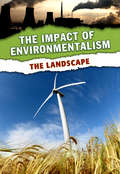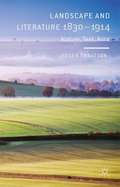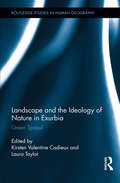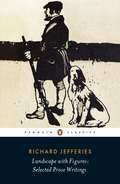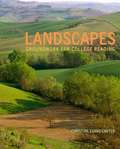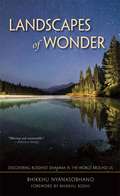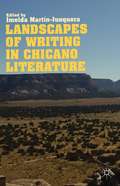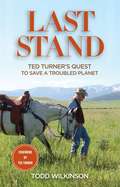- Table View
- List View
Junkyard Planet: Travels in the Billion-Dollar Trash Trade
by Adam Minter<p>When you drop your Diet Coke can or yesterday's newspaper in the recycling bin, where does it go? Probably halfway around the world, to people and places that clean up what you don't want and turn it into something you can't wait to buy. In Junkyard Planet, Adam Minter--veteran journalist and son of an American junkyard owner--travels deep into a vast, often hidden, five-hundred-billion-dollar industry that's transforming our economy and environment. <p>With unmatched access to and insight on the waste industry, and the explanatory gifts and an eye for detail worthy of a John McPhee or a William Langewiesche, Minter traces the export of America's junk and the massive profits that China and other rising nations earn from it. What emerges is an engaging, colorful, and sometimes troubling tale of how the way we consume and discard stuff fuels a world that recognizes value where Americans don't. Junkyard Planet reveals that Americans might need to learn a smarter way to take out the trash.</p>
The Justices and Injustices of Ecosystem Services (Routledge Studies in Ecosystem Services)
by Thomas SikorHumankind benefits from a multitude of resources and processes that are supplied by ecosystems, and collectively these benefits are known as ecosystem services. Interest in this topic has grown exponentially over the last decade, as biologists and economists have tried to quantify these benefits to justify management interventions. Yet, as this book demonstrates, the implications for justice and injustice have rarely been explored and works on environmental justice are only now addressing the importance of ecosystem services. The authors establish important new middle ground in arguments between conservationists and critics of market-based interventions such as Payment for Ecosystem Services. Neither can environmental management be separated from justice concerns, as some conservationists like to believe, nor is it in fundamental opposition to justice, as critics like to put it. The book develops this novel interpretation of justice in environmental management through analyses of prominent governance interventions and the conceptual underpinnings of the ecosystem services framework. Key examples described are revenue-sharing around protected areas and REDD+ for forest ecosystems. The analyses demonstrate that interventions create opportunities for enhancing social justice, yet also reveal critical design features that cause ostensibly technical interventions to generate injustices.
Justine McKeen and the Bird Nerd (Orca Echoes)
by Sigmund BrouwerMeet Justine McKeen, the Queen of Green. She's trying to save the planet, one person at a time, and when she decides to get something done, it's a lot of fun. When a small bird is injured after flying into a school window, the students are shocked and upset. But they are even more shocked when school bully Jimmy Blatzo rescues the bird and nurses it back to health. Blatzo may have saved one bird, but the problem is much bigger and not confined to the school grounds. Birds are flying into the windows at the town hall too. With the help of Justine, green activist extraordinaire, Blatzo gets the courage he needs to approach town council. Getting over his fear of public speaking will be one challenge. Getting used to his new nickname, Bird Nerd, will be another matter entirely.
Justine McKeen, Eat Your Beets (Orca Echoes)
by Sigmund Brouwer Dave WhamondMeet Justine McKeen, the Queen of Green. She talks a little too much, bosses a little too much and tells the truth, just not all at once. She's trying to save the planet, one person at a time, and when she decides to get something done, it's a lot of fun. In Justine McKeen, Eat Your Beets, the fourth book in the Justine McKeen series, Justine has another brilliant idea to help the planet. When she learns a stray cat and her kittens are living off the food in their school Dumpster, Justine sets out to reduce waste and help save animals in need. Her friends are supportive, but convincing grumpy Mr. Raymond, the cafeteria's manager, to help them put Justine's plan in action is another matter altogether.
Keep Out!: Build Your Own Backyard Clubhouse: A Step-by-Step Guide
by Lee MothesBuild your own unique backyard playhouse. In this inspiring guide, Lee Mothes shows you how easy it is to construct the hideout of your kids’ dreams. With simple step-by-step instructions and plenty of innovative ideas to engage kids throughout the building process, the whole family can get involved in the fun. You’ll love constructing a personalized clubhouse with your kids, and your kids will enjoy playing in it for years to come. Just don’t forget the secret password.
Klimawandel und Gesundheit
by Heiko J. Jahn Alexander Krämer Tanja WörmannDer Klimawandel und die daraus resultierenden Auswirkungen auf Gesundheit, Umwelt und Gesellschaft werden in den nächsten Jahren sowohl lokal wie auch global wichtige Fragen sein, auf die Antworten gefunden werden müssen. Das Buch führt anhand der wesentlichen Aspekte der direkten und indirekten klimawandelbedingten Gesundheitsfolgen in das Thema ,,Klimawandel und Gesundheit" ein. Dabei wird herausgearbeitet, dass klimabedingten Gesundheitsfolgen nur wissenschaftlich-interdisziplinär sowie über administrative und hierarchische Ebenen und über geografische und politische Grenzen hinaus effektiv entgegengewirkt werden kann. Im Hinblick auf die Herausforderungen, die hierzulande zu bewältigen sind und sein werden, helfen die zusammengetragenen Fakten, die Öffentlichkeit und Politik für dieses Thema weiter zu sensibilisieren. Zudem finden Fachleuten und Experten in öffentlichen Verwaltungen (z B. in der Stadtplanung oder im öffentlichen Gesundheitsdienst) viele Fallbeispiele, die als Anregung für deren Arbeit für eine gesunde Umwelt dienen. Studierende wie Wissenschaftler der Gesundheitswissenschaften und angrenzender Disziplinen wie Geografie, Klimatologie, Stadtplanung und Architektur, Ökonomie und Sozialwissenschaften werden eine reiche Quelle an Informationen finden, um sie für die Forschung in diesem Bereich zu begeistern.
Knickerbocker Snowstorm, The (Images of America)
by Kevin AmbroseOn the evening of January 28, 1922, several hundred people fought their way through the greatest snowstorm in Washington's history to see a show at the Knickerbocker Theater, the city's largest and most modern moving picture theater of the time. Unbeknownst to the theater patrons, the Knickerbocker Theater's flat roof was tremendously burdened by the weight of the snow. During the show's intermission, the snow-covered roof crashed down upon the crowd. As the roof fell, it collapsed the theater's balcony and pulled down portions of the surrounding brick walls, killing 98 people and injuring 133. Some of Washington's prominent politicians and business owners were among the casualties. The disaster ranks as one of Washington's worst in history, and the snowstorm continues to hold the record for Washington's single greatest snowfall.
Knowledge Systems of Societies for Adaptation and Mitigation of Impacts of Climate Change
by Harald Kaechele K. S. Rao K. V. Raju Ruediger Schaldach Sunil NautiyalClimate change is broadly recognized as a key environmental issue affecting social and ecological systems worldwide. At the Cancun summit of the United Nations Framework Convention on Climate Change's 16th Conference, the parties jointly agreed that the vulnerable groups particularly in developing countries and whose livelihood is based on land use practices are the most common victims as in most cases their activities are shaped by the climate. Therefore, solving the climate dilemma through mitigation processes and scientific research is an ethical concern. Thus combining the knowledge systems of the societies and scientific evidences can greatly assist in the creation of coping mechanisms for sustainable development in a situation of changing climate. International Humboldt Kolleg focusing on "knowledge systems of societies and Climate Change" was organized at ISEC. This event was of unique importance, as the year 2011-12 was celebrated as the 60th Anniversary of Diplomatic Relations between India and Germany with the motto "Germany and India - Infinite Opportunities." This volume is the outcome of the papers presented during the IHK 2011 at ISEC, India.
Knox Farm State Park
by Renee M. Oubre Gerald L. HalliganA stone wall along Seneca Street in East Aurora, New York, welcomes visitors to Knox Farm State Park with its charming buildings, woodlands, and open fields. The farmland was purchased by Seymour H. Knox, an entrepreneur from Russell, New York. Successful in the five-and-dime store industry with his cousin F.W. Woolworth, Knox expanded his business interests to include raising horses and developing a self-sustaining farm. Following his death in 1915, his family maintained and expanded the property, gracing it with architectural features reflecting their interests. In the 1990s, with the passing of Seymour Knox II and sons, the family's desire to preserve the beloved property was fulfilled with the establishment of Knox Farm State Park.
Ladybug Girl and the Big Snow (Ladybug Girl)
by Jacky DavisIn this hardcover picture book from the New York Times bestselling Ladybug Girl series, Ladybug Girl and Bingo need to look on the bright side of things to make their snow day adventure as much fun as it should be. Lulu and her dog Bingo wake up to a snow-covered yard and decide to have the best snow day ever. They make penguin tracks and taste the frosting-like snow. But the snow is deep and cold, and when Lulu tries to build a fort or make a snowball, her mittens are too wet and snow falls down the back of her neck. This is not the day she planned. And then Lulu remembers that she is Ladybug Girl and Ladybug Girl can do anything! With another determined look at the snow, Ladybug Girl overcomes her frustration and sees the yard in a whole new light. She and Bingo are now ready to use their imaginations to create their own snow games, snow animals, and snow adventures! For fans of The Snowy Day by Ezra Jack Keats, Ladybug Girl and the Big Snow honors the magic of the outdoors and creativity!
Land and Post-Conflict Peacebuilding (Post-Conflict Peacebuilding and Natural Resource Management)
by Jon Unruh Rhodri C. WilliamsClaims to land and territory are often a cause of conflict, and land issues present some of the most contentious problems for post-conflict peacebuilding. Among the land-related problems that emerge during and after conflict are the exploitation of land-based resources in the absence of authority, the disintegration of property rights and institutions, the territorial effect of battlefield gains and losses, and population displacement. In the wake of violent conflict, reconstitution of a viable land-rights system is crucial: an effective post-conflict land policy can foster economic recovery, help restore the rule of law, and strengthen political stability. But the reestablishment of land ownership, land use, and access rights for individuals and communities is often complicated and problematic, and poor land policies can lead to renewed tensions. In twenty-one chapters by twenty-five authors, this book considers experiences with, and approaches to, post-conflict land issues in seventeen countries and in varied social and geographic settings. Highlighting key concepts that are important for understanding how to address land rights in the wake of armed conflict, the book provides a theoretical and practical framework for policy makers, researchers, practitioners, and students. Land and Post-Conflict Peacebuilding is part of a global initiative to identify and analyze lessons in post-conflict peacebuilding and natural resource management. The project has generated six edited books of case studies and analyses, with contributions from practitioners, policy makers, and researchers. Other books in the series address high-value resources, water, livelihoods, assessing and restoring resources, and governance.
Land and Resource Scarcity: Capitalism, Struggle and Well-being in a World without Fossil Fuels (Routledge Studies in Environmental Policy)
by Andreas Exner Peter Fleissner Lukas Kranzl Werner ZittelThis book brings together geological, biological, radical economic, technological, historical and social perspectives on peak oil and other scarce resources. The contributors to this volume argue that these scarcities will put an end to the capitalist system as we know it and alternatives must be created. The book combines natural science with emancipatory thinking, focusing on bottom up alternatives and social struggles to change the world by taking action. The volume introduces original contributions to the debates on peak oil, land grabbing and social alternatives, thus creating a synthesis to gain an overview of the multiple crises of our times. The book sets out to analyse how crises of energy, climate, metals, minerals and the soil relate to the global land grab which has accelerated greatly since 2008, as well as to examine the crisis of profit production and political legitimacy. Based on a theoretical understanding of the multiple crises and the effects of peak oil and other scarcities on capital accumulation, the contributors explore the social innovations that provide an alternative. Using the most up to date research on resource crises, this integrative and critical analysis brings together the issues with a radical perspective on possibilites for future change as well as a strong social economic and ethical dimesion. The book should be of interest to researchers and students of environmental policy, politics, sustainable development and natural resource management.
Land Change Science, Political Ecology, and Sustainability: Synergies and divergences
by Christian Brannstrom Jacqueline M. VadjunecRecent claims regarding convergence and divergence between land change science and political ecology as approaches to the study of human-environment relationships and sustainability science are examined and analyzed in this innovative volume. Comprised of 11 commissioned chapters as well as introductory and concluding/synthesis chapters, it advances the two fields by proposing new conceptual and methodological approaches toward integrating land change science and political ecology. The book also identifies areas of fundamental difference and disagreement between fields. These theoretical contributions will help a generation of young researchers refine their research approaches and will advance a debate among established scholars in geography, land-use studies, and sustainability science that has been developing since the early 2000s. At an empirical level, case studies focusing on sustainable development are included from Africa, Central and South America, and Southeast Asia. The specific topics addressed include tropical deforestation, swidden agriculture, mangrove forests, gender, and household issues.
Land of Little Rivers: A Story in Photos of Catskill Fly Fishing
by Enrico Ferorelli Austin M. FrancisThe Beaverkill, Willowemoc, Neversink, Esopus, Schoharie, and Delaware--the rivers of angling pioneers Thaddeus Norris, Robert Barnwell Roosevelt, Theodore Gordon, and many others--are celebrated in this gorgeous book of photographs and text. In three major sections, Land of Little Rivers presents historical and physical profiles of the rivers; classic rods, reels, and flies; and engaging stories of the people, events, and developments that constitute the Catskill fly-fishing tradition.Complementing its photographic beauty, Land of Little Rivers is a book of substance, filled with fascinating stories, anecdotes, and nuggety captions. Land of Little Rivers is the product of author Francis's twenty-five years of research and writing about Catskill fly fishing, and of photographer Ferorelli's more than thirteen thousand images, from which has been selected the most evocative portfolio of photos ever made of these historic rivers. Together they have produced an exquisite, museum-quality work, one that captures magnificently the beauty and passion so central to the sport Izaak Walton called "the gentle art."
Land Tenure Reform in Asia and Africa
by Stein T. Holden Keijiro Otsuka Klaus DeiningerRural poverty remains widespread and persistent in South Asia and Sub-Saharan Africa. A group of leading experts critically examines the impact of land tenure reforms on poverty reduction and natural resource management in countries in Africa and Asia with highly diverse historical contexts.
Land Use and the Carbon Cycle
by Daniel G. Brown Derek T. Robinson Nancy H. F. French Bradley C. ReedAs governments and institutions work to ameliorate the effects of anthropogenic CO2 emissions on global climate, there is an increasing need to understand how land-use and land-cover change is coupled to the carbon cycle, and how land management can be used to mitigate their effects. This book brings an interdisciplinary team of fifty-eight international researchers to share their novel approaches, concepts, theories and knowledge on land use and the carbon cycle. It discusses contemporary theories and approaches combined with state-of-the-art technologies. The central theme is that land use and land management are tightly integrated with the carbon cycle and it is necessary to study these processes as a single natural-human system to improve carbon accounting and mitigate climate change. The book is an invaluable resource for advanced students, researchers, land-use planners and policy makers in natural resources, geography, forestry, agricultural science, ecology, atmospheric science and environmental economics.
The Landscape (The Impact of Environmentalism)
by Neil MorrisWe are all aware of the importance of the environment - it's in the news, it affects our behavior and the decisions we make every day. But what actual impact has environmental thinking had on the world around us? This thought-provoking book looks at the way changing ideas about the environment and sustainability have affected our attitudes to the landscape, and will do so in the future.
Landscape and Change in Early Medieval Italy
by Paolo SquatritiThis innovative environmental history of the long-lived European chestnut tree and its woods offers valuable new perspectives on the human transition from the Roman to the medieval world in Italy. Integrating evidence from botanical and literary sources, individual charters and case studies of specific communities, the book traces fluctuations in the size and location of Italian chestnut woods to expose how early medieval societies changed their land use between the fourth and eleventh centuries, and in the process changed themselves. As the chestnut tree gained popularity in late antiquity and became a valuable commodity by the end of the first millennium, this study brings to life the economic and cultural transition from a Roman Italy of cities, agricultural surpluses and markets to a medieval Italy of villages and subsistence farming.
Landscape and Literature 1830–1914
by Roger EbbatsonThis study examines the vital centrality of 'readings' of nature in a variety of literary forms in the period 1830-1914. It is exploratory and original in approach, stressing the philosophical and cultural implications in a range of texts from Tennyson, Hardy, Jefferies and Thomas.
Landscape and the Ideology of Nature in Exurbia: Green Sprawl (Routledge Studies in Human Geography #39)
by Laura Taylor Kirsten Valentine CadieuxThis book explores the role of the ideology of nature in producing urban and exurban sprawl. It examines the ironies of residential development on the metropolitan fringe, where the search for “nature” brings residents deeper into the world from which they are imagining their escape—of Federal Express, technologically mediated communications, global supply chains, and the anonymity of the global marketplace—and where many of the central features of exurbia—very low-density residential land use, monster homes, and conversion of forested or rural land for housing—contribute to the very problems that the social and environmental aesthetic of exurbia attempts to avoid. The volume shows how this contradiction—to live in the green landscape, and to protect the green landscape from urbanization—gets caught up and represented in the ideology of nature, and how this ideology, in turn, constitutes and is constituted by the landscapes being urbanized.
Landscape with Figures: Selected Prose Writings
by Richard JefferiesRichard Jefferies was the most imaginative and least conventional of nineteenth-century observers of the natural world. Trekking across the English countryside, he recorded his responses to everything from the texture of an owl's feather and 'noises in the air' to the grinding hardship of rural labour. This superb selection of his essays and articles shows a writer who is brimming with intense feeling, acutely aware of the land and those who work on it, and often ambivalent about the countryside. Who does it belong to? Is it a place, an experience or a way of life? In these passionate and idiosyncratic writings, almost all our current ideas and concerns about rural life can be found.Richard Jefferies (1848-1887) was the son of a Wiltshire farmer. He never worked the land but made his living from writing, trekking across the countryside with his notebook. He spent much of his life struggling against poverty and tuberculosis, which would eventually kill him at the age of thirty-nine. As well as being in many ways the father of English nature writing, Jefferies also wrote the classic children's book Bevis and the apocalyptic science-fiction novel After London.Richard Mabey's introduction to his selection of Jefferies' work discusses the author's life, his views on the paradoxes of rural life and his place in the tradition of nature writers.
Landscapes: Groundwork for College Reading
by Christine Evans CarterThis all-in-one book takes a metacognitive approach to teaching reading skills while integrating study strategies and vocabulary into every chapter in a meaningful way; offering modeled help as well as abundant, varied practice; and including two authentic textbook chapter applications for real-to-life academic readings students are expected to be able to complete.
Landscapes of Wonder
by Bhikkhu Bodhi Bhikkhu Nyanasobhano"To most of us there have come exceptional, unworldly moments, like unsuspected deeps in a stream, when we fell through appearances - fell through ourselves - into an intuition of majesty and wonder." - Bhikkhu Nyanasobhano in Landscapes of Wonder Landscapes of Wonder deftly transports the spirit of Buddhist contemplation off the cushion and into the natural world. With a lyricism and spiritual immediacy reminiscent of Thoreau and Emerson, in eighteen meditational essays Bhikkhu Nyanasobhano considers Buddhist themes through the prism of nature. The reflections captured in these satisfying literary explorations will appeal to all who appreciate contemplation of the natural world and our place in it.
Landscapes of Writing in Chicano Literature
by Imelda Martín-JunqueraAdding nuance to a global debate, esteemed scholars from Europe and North and Latin America portray the attempts in Chicano literature to provide answers to the environmental crisis. Diverse ecocritical perspectives add new meaning to the novels, short stories, drama, poetry, films, and documentaries analyzed in this timely and engaged collection.
Last Stand: Ted Turner's Quest To Save A Troubled Planet
by Todd WilkinsonEntrepreneur and media mogul Ted Turner has commanded global attention for his dramatic personality, his founding of CNN, his marriage to Jane Fonda, and his company's merger with Time Warner. But his green resume has gone largely ignored, even while his role as a pioneering eco-capitalist means more to Turner than any other aspect of his legacy. He currently owns more than two million acres of private land (more than any other individual in America), and his bison herd exceeds 50,000 head, the largest in history. He donated $1 billion to help save the UN, and has recorded dozens of other firsts with regard to wildlife conservation, fighting nukes, and assisting the poor. He calls global warming the most dire threat facing humanity, and says that the tycoons of the future will be minted in the development of green, alternative renewable energy. Last Stand goes behind the scenes into Turner's private life, exploring the man's accomplishments and his motivations, showing the world a fascinating and flawed, fully three-dimensional character. From barnstorming the country with T. Boone Pickens on behalf of green energy to a pivotal night when he considered suicide, Turner is not the man the public believes him to be. Through Turner's eyes, the reader is asked to consider another way of thinking about the environment, our obligations to help others in need, and the grave challenges threatening the survival of civilization.
